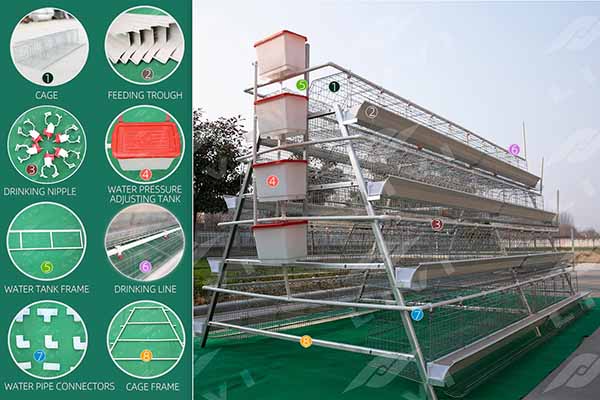Sustainable Chicken Farming Practices: Enhancing Efficiency and Reducing Impact
Introduction to Sustainable Chicken Farming
Sustainable chicken farming practices are essential for the long-term viability of the poultry industry. These methods not only enhance the efficiency of operations but also reduce the environmental impact. By adopting sustainable practices, chicken farmers can ensure profitability while preserving the planet.
Key Practices for Sustainable Chicken Farming
1. Eco-friendly Feed Ingredients
– Use of locally sourced feed ingredients can reduce transportation emissions and support local economies.
– Incorporate feed with high nutritional value to minimize waste and improve animal health.
2. Energy Efficiency
– Install energy-efficient lighting and heating systems to reduce electricity consumption.
– Utilize renewable energy sources like solar panels to further reduce carbon footprint.
3. Water Conservation
– Implement water recycling systems to minimize water usage and reduce waste.
– Regularly monitor and manage water usage to ensure sustainability.
4. Animal Welfare
– Provide comfortable living conditions with access to fresh air and sunlight.
– Implement health management programs to reduce the use of antibiotics.
5. Waste Management
– Compost manure and bedding materials to produce organic fertilizers.
– Properly dispose of waste to prevent environmental contamination.
Case Study: Reducing Energy Consumption by 30%
A leading chicken farm implemented energy-efficient measures such as LED lighting and solar panels. As a result, they achieved a 30% reduction in energy consumption, saving approximately $10,000 annually.
Benefits of Sustainable Chicken Farming
– Improved Profitability: Reduced operational costs lead to higher profits.
– Enhanced Reputation: Consumers are increasingly demanding sustainable products.
– Environmental Protection: Sustainable practices help minimize the industry’s impact on the environment.
Conclusion
Adopting sustainable chicken farming practices is not only beneficial for the environment but also for the financial health of chicken farms. By focusing on energy efficiency, water conservation, animal welfare, and waste management, farmers can create a more sustainable and profitable operation.
For more information on how to implement sustainable practices in your chicken farm, or to request a free design and equipment quote from LIVI Machinery, please leave a comment below.





